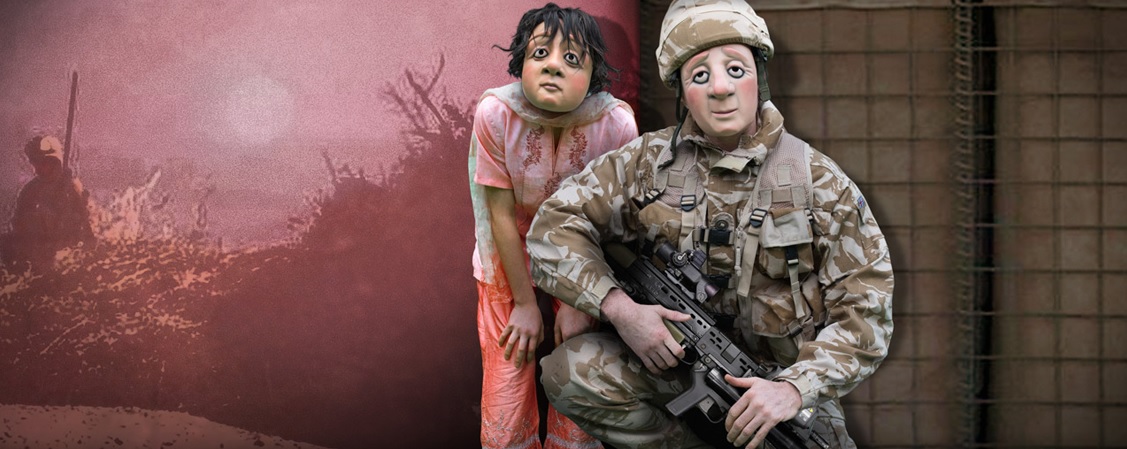In A Brave Face, Vamos Theatre open a window onto the world of PTS suffered by soldiers returning to civilian life, a world we only caught glimpses of in the BBC’s recently broadcast Bodyguard. However, as is made painfully clear in this production, this issue is one that should be at the forefront of the news, but society, the health service, the government, the army – no one knows what to do about the hidden damage and the immense suffering for the soldiers and their families.
The five actors in the company (João Ricardo Aguiar, Tessa Gaukroger, James Greaves, Sophia Knox-Miller, and Joshua Patel) play in full facial masks and convey all the action and emotion of the play without spoken dialogue. However, the use of masks, rather than restricting the cast, liberates them from the confines of language and further echoes how many soldiers, who have been through what to many of us is unimaginable horror, are unable to articulate their feelings. Conveying the action only through body language, with incredibly effective lighting effects and a soundtrack of music, the cast are able to portray a wide range of situations with compassion, tenderness, and humour.
The play shows how Ryan, a teenage boy, joins the army, but after he becomes injured during a tour of Afghanistan, he has to return home to a family and a society that have become as alien to him as he is to them. There is a huge gulf between the normality we see initially, with his mother fussing over his clothes, his younger sister badgering him, as Ryan leaves Middlesbrough behind to embark on a new phase of his life, and then his return. The inability of society, his family, and Ryan to adjust and to cope is illustrated through heart-wrenching scenes and subtle details. We see how the army transforms him from a young lad, only just turned 18, to a professional, trained to be hypervigilant, to suppress his emotions, to be ready to kill, as well as the camaraderie that develops the strong bonds between the soldiers, bonds essential for their survival in a hostile environment, but then returns him to civilian life with no training on how to unlearn or adapt those skills. And we also see the effects of this on his family, and their struggle to cope with having their son/brother returned to them broken and lost, despair deepening as they embark on a bewildering round of doctor’s appointments, endless form filling, leaflets on therapy, and tablets. And at the end of the play, Ryan’s future remains uncertain. There is no happy ever after.
This remarkable production might go some way towards bridging the gap in understanding between society and soldiers with PST and, as such, is essential viewing.
Reviewer: Johanna Roberts
Reviewed: 21st February 2019
North West End Rating: ★★★★★

